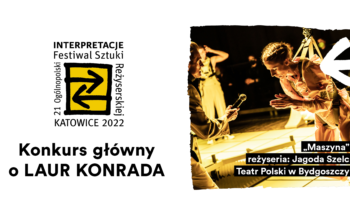
Documentary is the most important genre invented by cinema. It is the salt of cinema. However, if you ask what documentary is a random candidate for the prestigious faculty of film direction, then… Everyone knows what a feature film is, yet few know what documentary is. Do you know that?
Sure you do! Documentary is filmed reality. Just put the camera in the right place and your documentary is going to make itself providing it is a really good place. Well, it might not make itself, you need to monitor it. Oh, and you need to keep things balanced to represent both parties’ perspectives without imposing your own view. Is it really so? Well, it is not.
Documentary and feature films are first and foremost FILMS. No special treatment for them. They need a subject, characters, drama, energy and pace. A metaphor would be handy, as would anything required to interpret reality. To interpret, indeed! To interpret rather than reproduce. This is why real documentaries are so scarce and TV reporting so abundant.
Each film school teaches students to make documentaries. It is because documentary provides directors with an opportunity for a fair and fast growth.
You need to learn to think cinematically, or to speak solely with images, sometimes with situations, and the least, with dialogue – unlike in soap operas. How to build narrative, how to lead the audience by the nose so that it does not go out to make tea in the process?
Documentary forces directors to cross their limitations. Documentary gets you off facebook and puts you in front of another human being. You need to leave your home and approach and win over a complete stranger. You need to make them accept the woman with a camera and the man with a pole so that the hero feels safe like a baby and does not notice the people standing a meter away who sharpen, pan and collect sounds etc… The hero does not see them and continues to live as usual. However, there are now slightly more things going on in his life, or it just seems more dense. How it all works is each director’s secret.
Is today’s generation of directors different than at the time of Kieślowski? Has something changed? We have put aside the noisy cameras, in which we had to change the tape every once in a while and come to use small silent cameras, with which you can record continuously for an hour. True. We do not edit on the tables using scotch tape, contemplating every decision since the table did not have the ‘undo’ button. This is true. Has documentary consequently changed? No, it has not. The essence has not changed. Indeed, filmmaking conditions are easier; this, however, is of no significance. One has to go the same path Krzysztof Kieślowski had followed. To get to know. To understand. To reflect. To know about what, what for and how. Only then can you grab the camera. And whether you manipulate and expose something or record it as a series of zeros and ones is of lesser importance.
The subjects fascinating directors obviously change. Sometimes, they resort to solutions that would not be so obvious at the ‘tape times’. They are happy to combine traditional narrative with animation. They are not afraid of staged scenes. They look for support in the fields of art other than cinema. All of this is true. However, this is nothing new. Documentary film has always been more open to experimenting than feature film. For a simple reason – documentary is cheaper. It is easier to be brave when the fall is less painful. Documentary has always paved the way for feature film.
We are presenting the films made by students of the Katowice Film School that we like and are proud of.
For starters, we are going to screen one-of-a-kind documentary comedy “Biało-czerwoni z Chrząstawy” directed by Krystian Kamiński. It is a warm, lightsome and uplifting film, which recounts a story about country’s worst football team, which is in a way also the best team…
Then comes a real challenge – Jakub Radej’s “Proch.” This is a film that takes all of the world’s film festivals by storm, from Kraków to Clermont-Ferrand. This film is exceptional because of its subject and the method used. It is a film with no hero. Without a personalized hero. Framed with almost surgical precision, the footage brings us to the world that we, the viewers, have to fill in with our own emotions and sensations. The director just gives us some clues and takes us to a journey into the depths of our own anxieties. This film is as good as the audience lets it to be…
The programme also includes something about children. Children seem to be a topic that is both graceful and difficult. We are going to meet the smallest school in the EU, with just 5 students. The four of them are small adults. They speak like adults, act like adults and, worst of all – dream like adults. And here is one of them: Krystian – a real child. One that does not fit anywhere and is happy only when he gets to fly away along the spider’s web. Directed by Katarzyna Warzecha, Alex Casianow and Martyna Majewska, “Gdybym tylko był pająkiem” was produced as part of an annual documentary workshop. This is why it has three directors and as many cinematographers. It is particularly popular among Chinese audiences and is regularly screened at festivals and reviews in China.
“Casting” by Klaudia Kęska. Children here are slightly older and the problems are completely different. The daily routine at an orphanage is disrupted by unexpected news. An audition for the “Godfather” stirs huge emotions. Children want to act in the film. When they start to explore the psyche of the characters, they naturally expose their own psyche. This is a beautiful and nostalgic film about the world around the corner. I hope we want to visit it sometimes.
An opinion poll is a means that is rarely used by documentary filmmakers as it is rather part of the TV set of film tools. The most famous film using this format is Krzysztof Kieślowski’s “Talking Heads.” In the presented film, the talking heads are men’s only. They speak about women: biddies, chicks, ladies, babes and such. We gradually get to know more and more about the men. At times, it is hair-raising… Overall, though, it is just funny. Ladies, please watch it and lose some of your illusions. Mateusz Głowacki makes the watching experience truly painful. “Sonda o kobietach.”
At last, we offer you two films about family. The first one is a story about a daughter and a father. He wants to fight with ISIS, and she wants to have a father for herself. The films presents conversations full of tension and difficult negotiations in a world we do not know, somewhere on the outskirts of Iran, near the border with Syria. The film is entitled “Pasdar” and was directed by Grzegorz Piekarski.
“Tama” directed by Natalia Koniarz also takes place on the fringes of the world, specifically in the Bieszczady Mountains. The father and the son set off for a trip together so that one of them can sober up and the other learn something about himself. Both are travelling a difficult road, and when a howl of an old wolf resounds in a forest, everybody is thrilled.
“Tama” and “Pasdar” share something more than just exploration of family relationships at a moment that is exceptional to each of them. Both films are first-year pieces. With a budget of… one thousand zloties each. Even the one taking place on the Syrian border.
Beata Dzianowicz, Director and screenwriter
Andrzej Fidyk, Director and documentary screenwriter and film professor



